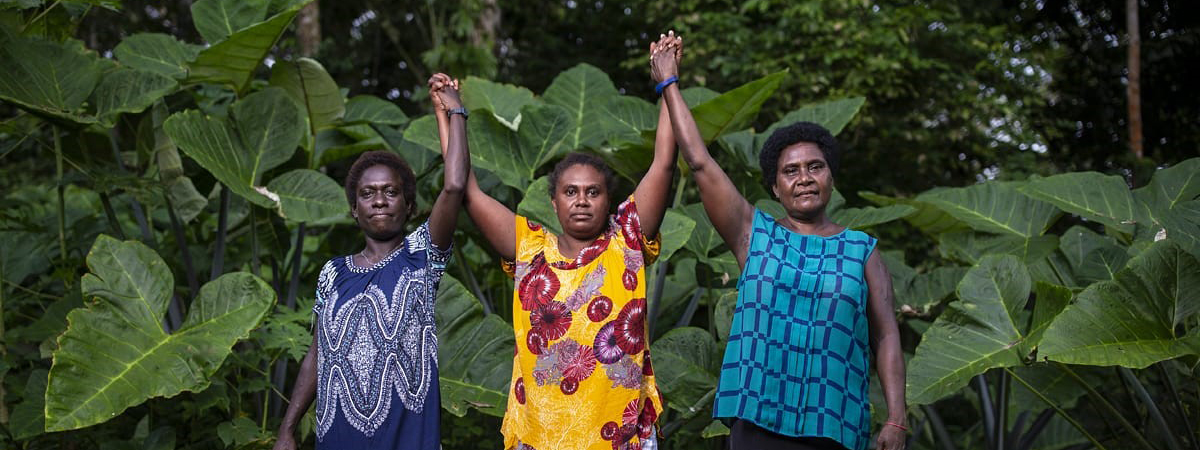
Economic justice
Explore evidence on women’s economic rights, including issues of women’s unpaid work and the care economy.
Women’s Economic Empowerment Learning Brief
This brief synthesises findings from four evaluations of IWDA women’s economic empowerment projects. IWDA commissioned a consultant to review evaluations of the following projects: – Rural Women’s Development Project – Timor Leste (2012-2015) – Taking Steps Project – Timor Leste (2012-2015) – Tugeda Tude Fo Tumoro Program – Solomon Islands (2009-2016) – Women’s Financial Literacy…
Economic Empowerment Synthesis Report
This report synthesises findings from four evaluations of IWDA women’s economic empowerment projects. IWDA commissioned a consultant to review evaluations of the following projects: – Rural Women’s Development Project – Timor Leste (2012-2015) – Taking Steps Project – Timor Leste (2012-2015) – Tugeda Tude Fo Tumoro Program – Solomon Islands (2009-2016) – Women’s Financial Literacy…
Do No Harm: Human Security Policy Brief
This brief discusses this importance of understanding interactions between women’s economic security and violence against women in the Pacific to inform policy and practice that advances human security. In a context where prevalence rates of violence against women and girls in the Pacific are among the highest in the world and the importance of women’s…
Women’s Savings Club Learning Paper
The Tugeda Tude fo Tumoro (TTFT) project was established in 2009 to support communities to achieve gender-inclusive sustainable natural resource management. As part of this project, the TTFT women’s savings club model was developed as a means of promoting sustainable livelihoods and increasing women’s participation in decision making in order to bring about sustainable natural…
Learning Paper: IWDA and women’s economic empowerment
This paper explores IWDA’s women’s economic empowerment program through the viewpoint of three evaluations undertaken in 2011-12. Drawing from the learning in these evaluations and from current literature, this paper highlights strengths of IWDA’s economic empowerment program as well as areas where greater coherence and effectiveness can be achieved.
Gender Matters 5: Gender equality is smart economics – but it takes more than money and markets
Gender Matters is a vehicle for IWDA to share emerging ideas and new research. It comes out at least twice a year, providing insights into gender and development issues from both a theoretical and a practical perspective. Gender Matters 5 focusses on the gender equality and economics, with a look at savings clubs in Solomon…
Gender Matters 3: Triple Jeopardy – Gender-based violence, disability and rights violations amongst women in Cambodia
Gender Matters is a vehicle for IWDA to share emerging ideas and new research. It comes out at least twice a year, providing insights into gender and development issues from both a theoretical and a practical perspective. Gender Matters 3 focusses on violence, disability and rights violations amongst women in Cambodia.
Participatory Activities for Tracking Gendered Impacts of Economic Change in Melanesian Communities Flash Cards
The economies of Pacific Island nations are changing and these changes are having significant impacts on the nature of rural and urban life. Increasing numbers of people are on the move to the cities and towns of their home countries and beyond. Economic change has the potential to affect men and women differently, both positively…
Gender and Economy in Melanesian Communities Manual
The economies of Pacific Island nations are changing and these changes are having significant impacts on the nature of rural and urban life. Increasing numbers of people are on the move to the cities and towns of their home countries and beyond. Across the region, new agreements to allow free trade and promote economic growth…
Do No Harm Research Brief
IWDA and the State Society & Governance in Melanesia program at the Australian National University are partnering on a research initiative, with funding from the Australian Government through the Department of Foreign Affairs and Trade, to understand whether and in what ways economic inclusion and empowerment initiatives affect women’s experience of violence. ‘Do No Harm’…
River of Change Poster
A visual representation of gender and economic change in Melanesia.
The Floating Coconut Poster: A Tool to Value Women’s Work
The Floating Coconut is a resource for creating awareness of the range of activities that create economic and social value. It was designed primarily for use by Civil Society Organisations but can be used in a variety of contexts.